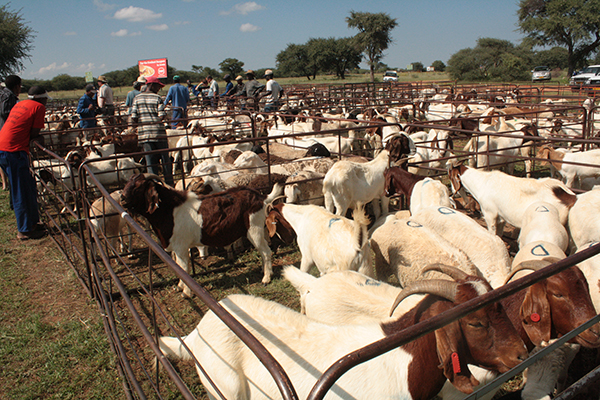Staff Reporter
The Agricultural Bank of Namibia has said the lifting of a ban on the movement of cattle to South Africa is responsible for an increase in animals sold on the market, while the sale of small stock is also showing signs of recovery.
The total number of cattle marketed stood at 21 991 heads in October 2022, which is a 36% increase from the 16 164 marketed in September 2022. The growth in cattle markets can be attributed to a 60% increase in live exports to 15 667 in October 2022 from 9 808 recorded in the prior month.
These figures are contained in the latest Market Watch report compiled by Agribank. The bulk of the cattle (99%) were exported to South Africa, following the ban on the movement of cattle which was lifted in September 2022.
“We expect livestock marketing to remain on an upward trajectory for the rest of the year, coupled with the anticipated rainy season and the resumption of weaner exports to South Africa”, the report reads.
Small stock marketing recorded an average decline of 30% from July 2022 to September 2022. However, October 2022 showed a potential turnaround, declining at a slower pace of 9% to 24 043 marketed heads from 26 517 in September 2022.
According to the report, remarkable growth was noted in goats marketing, recording a 44% increase to 16 965 heads in October 2022 from 11 745 in September 2022.
“The growth was driven by an increase in marketing activities in live exports that spiked by 43% to 16 749 in October 2022 from 11 742 in the prior month,” the statement noted.
The Namibia Rangeland monitoring report for November 2022 indicated that the eastern and northeastern parts of the country are in the process of greening up, a result of a few raindrops received. This is a better indication for good grazing lands over certain areas in the country.
“We remain cautious about rainfall expectations for the next rainy season. The anticipated occurrence of a La-Nina continues to threaten food production and global food prices. It is, therefore, imperative that Namibia, including Agribank, expedite resources mobilisation towards climate adaptation and resilience projects for farmers,” stated Agribank.


